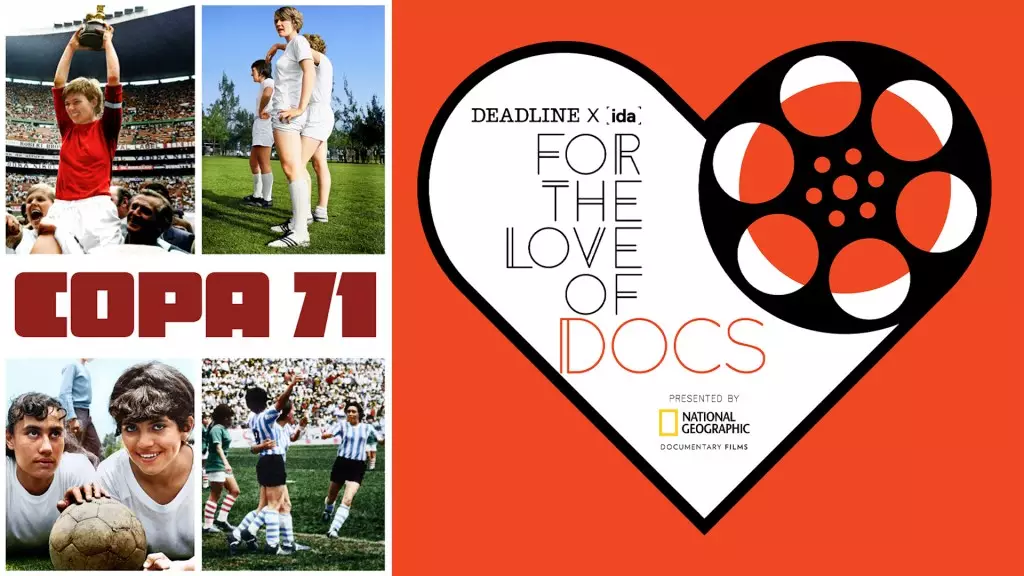In the realm of women’s sports, few moments resonate with the historical weight of the 1971 Women’s World Cup, often overlooked or forgotten amidst the annals of sports history. Held in the grand Azteca Stadium in Mexico City, this unofficial tournament attracted an awe-inspiring crowd of over 110,000 spectators, underpinning the undeniable allure of women’s soccer long before it gained mainstream recognition. The event’s story is compellingly captured in the documentary “Copa 71,” where filmmaker collaborators Rachel Ramsay, James Erskine, and Victoria Gregory illuminate not only the triumphs but the trials faced by the players involved. Despite its significance, the tournament has remained insufficiently recognized, prompting a critical examination of its implications in contemporary discussions about gender equality in sports.
The inspiration for “Copa 71” arose from a chance encounter in the form of a radio program that beckoned Gregory to delve deeper into the narrative of the tournament. This serendipitous moment spurred a meticulous effort to recover archival footage and locate surviving players, embarking on a journey towards rediscovery. The filmmakers faced initial resistance from former England team members, who grappled with the ramifications of revisiting an event long shrouded in neglect. Their apprehension was not unfounded; 1971 was a time when returning to spotlight still carried the weight of prior exploitation, overwhelming the athletes with doubt about their portrayal in a documentary format. Building trust became paramount, as many had previously hidden their experiences from their families, making the documentary not just a historical recount but a powerful revelation.
The tournament in question was both a pinnacle of achievement and a source of trauma for many athletes. Popular media in 1971 often relegated the women to caricatures, focusing on their physical appearances while dismissing their athletic prowess. This gross misrepresentation created an environment where the achievements of these women were overshadowed by derogatory commentary. The institutional disregard of women’s soccer by governing bodies, notably FIFA, further complicated the recognition of such tournaments. It wasn’t until 1991 that an official Women’s World Cup emerged, leaving the legacy of Copa 71 in a precarious position, historically significant yet lingering in the shadows of male-dominated narratives.
Fast forward to the present day, and the disheartening revelations surrounding the appointment of Luis Rubiales, who forcibly kissed a player during a medal ceremony in the recent 2023 tournament, serve as a stark reminder of the persistent struggles for respect and autonomy faced by female athletes. Ramsay emphasized that the themes explored in the documentary remain eerily relevant, touching on issues of power, financial independence, self-expression, and media exploitation—subjects that have plagued women athletes for decades. The similarity in these conversations highlights a cycle of ongoing challenges that require urgent attention and action.
The enormous turnout at Copa 71 foreshadowed the vitality and demand for women’s sports. It demonstrated that the market for women’s soccer was not only existent but could thrive given the right conditions. The event’s aftermath left many players feeling that profits accrued by media companies and sponsors failed to trickle down to them, exemplified by the Mexican team’s metaphorical strike for better compensation. This speaks not merely to a discrepancy in financial remuneration but to a broader struggle for recognition and equitable treatment within the sport.
The filmmakers assert that the fight surrounding women in sports transcends mere economics. Erskine critiques the notion that success in sports should be tied purely to profitability, emphasizing the importance of acknowledgment and autonomy as fundamental rights. Underlining that issues of control and agency overshadow valuation in monetary terms, he contends that the real battle lies in ensuring women athletes have the freedom to express themselves without undue restraint or humiliation. It’s a call to action that resonates deeply within a framework where the status quo continues to marginalize female voices.
“Copa 71” is not just a retelling of a forgotten event; it is a resounding narrative that urges society to reflect upon the strides still needed to achieve gender equality in sports. The documentary evokes a powerful message: the recognition of talent and dignity should not be contingent upon gender. As historical narratives like Copa 71 reemerge in our collective consciousness, they serve as catalysts for necessary conversations about equity, respect, and self-expression in women’s sports. The journey is ongoing, but illuminating tales from the past join the fight for a more inclusive and equitable future, proving that women’s sports possess a rich legacy worthy of celebration and acknowledgment.
